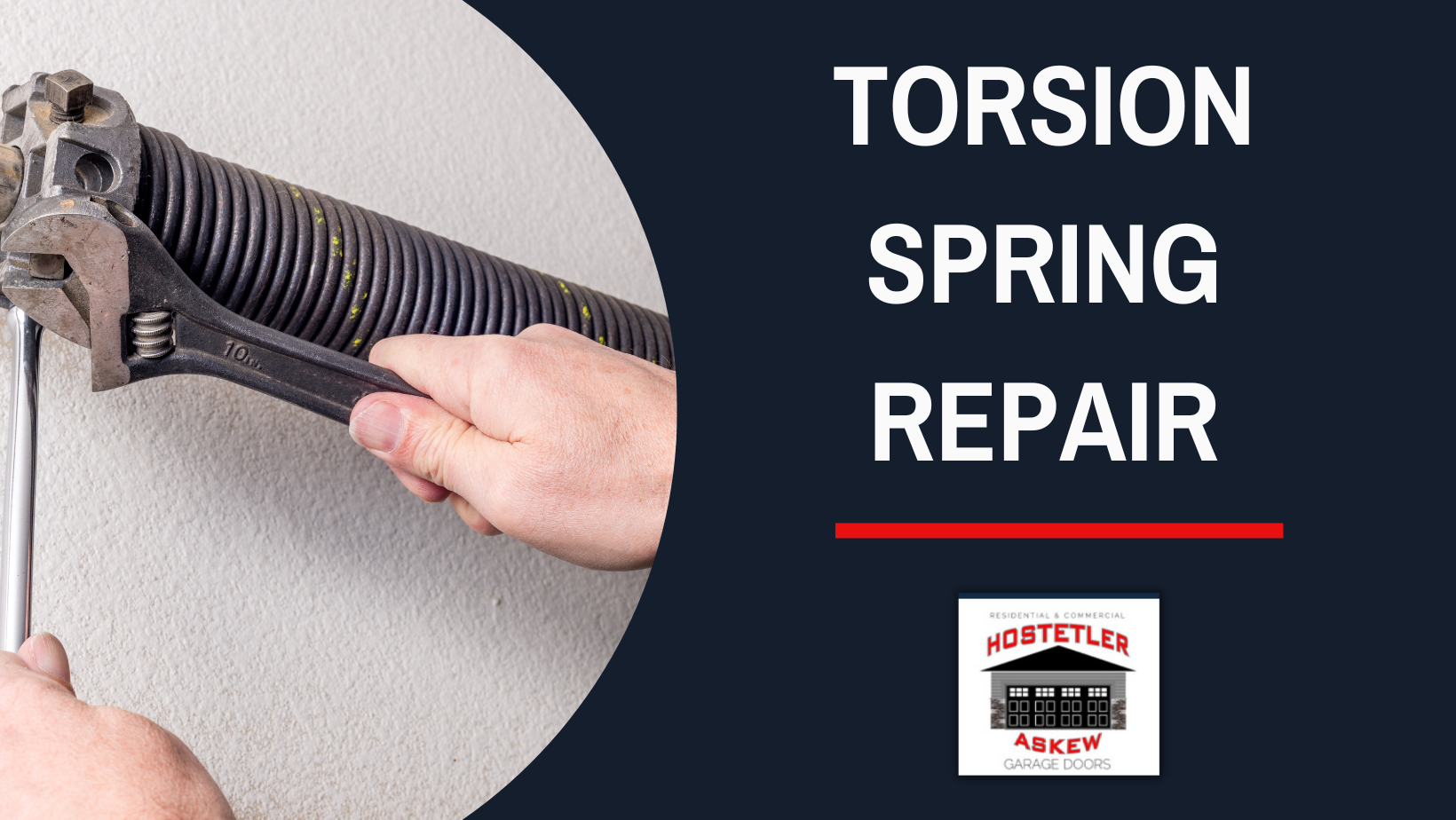Replace Broken Springs
Your garage door is more than just an entryway; it’s a critical component of your home that needs attention. At Hostetler & Askew, we understand the importance of a functioning garage door:
- Garage Door’s Vital Role: Many Hoosier families frequently use their garage doors, even more than their main entrances. It’s easy to overlook, but what if it fails one morning?
- The Essence of Garage Door Springs: These springs bear your door’s full weight, which could be around 300 lbs. They ensure balanced, smooth door operations. There are two types: torsion springs (which twist) and extension springs (which expand and compress). Torsion springs are becoming the more popular choice for modern homes.
- Safety Concerns: Garage door springs are not DIY fixes. Every year, several people are injured by attempting unguided repairs. The stakes are high, and we advise you always to trust professionals for such tasks.
- Why Springs Fail: Rust, daily usage, and lack of maintenance can reduce the lifespan of these springs. Typically, they last around 10,000 cycles. Frequent usage could mean a lifespan of 7-9 years.
- Maintenance Matters: Regular check-ups and appropriate lubrication can prolong your spring’s life. You can prevent potential accidents by spotting early signs of wear and tear or hearing unusual noises. At Hostetler & Askew, we recommend periodic inspections to ensure your door remains in optimal condition.
- Life Expectancy: On average, torsion and extension springs can last 7 to 12 years, depending on their use and maintenance.
- Our Recommendation: Always consult a professional when in doubt. A broken spring isn’t just an inconvenience; it’s a potential hazard. We’ve been serving Indiana homeowners for years, ensuring the safety and functionality of their garage doors. Please don’t risk your safety; let us handle it.

What Happens When Garage Door Springs Fail?
Here’s what you need to know about one of the most critical components of your garage door – the springs:
- Unexpected Loud Noises: If you hear a sudden loud crash from your garage, it might be due to a spring breaking. This can happen even if the door remains intact.
- Visible Spring Gap: A clear sign of a broken spring is a visible gap in it. Intact springs should appear seamlessly connected and tightly coiled.
- Door Panel Bending: A bending top panel when you attempt to open your door is a classic indicator of a malfunctioning spring. The door opener struggles to support the door’s weight without the spring’s assistance.
- Rapid Door Movement: A healthy garage door operates smoothly. But with a broken spring, your door might descend rapidly, posing a safety risk.
- Misaligned Door Movement: Your garage door might still function even with a broken spring. However, its movement will appear uneven as the weight isn’t balanced.
- Dangling Cables: A broken spring can have a cascading effect. Often, this results in cables becoming slack or unspooled.
Considering Spring Replacement Costs?
Entrusting experts with garage door spring replacement is the wisest decision. On average, spring replacement, including parts and labor, begins at $400. Given that most garage doors have dual springs, replacing both simultaneously is recommended for optimal performance.
Your garage door is an intricate system that plays a paramount role in the security and functionality of your home. Given its significance and the risks associated with malfunctions, especially with springs, investing in its care and maintenance is crucial.
At Hostetler & Askew, we bring years of expertise and dedication to ensure the safety and longevity of your garage doors. Don’t wait for a problem to surface. Be proactive, and let us provide the safety assurance you deserve.


